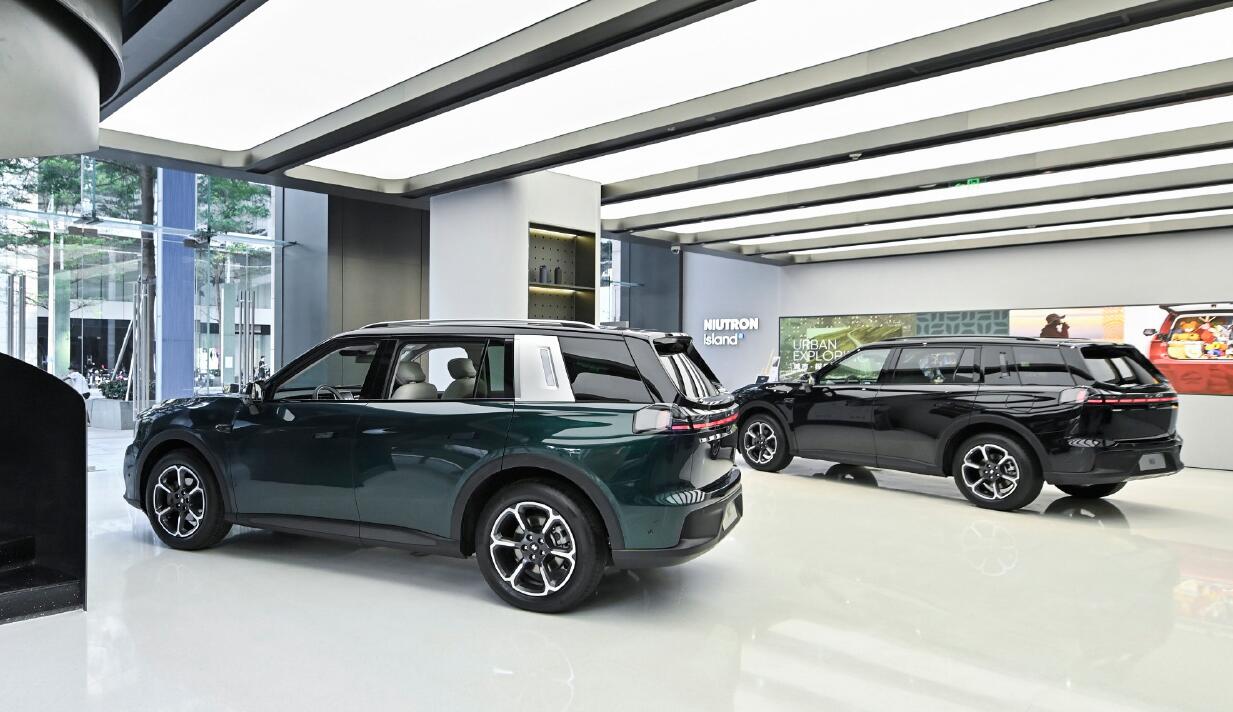Chinese EV startup Niutron still hopes to start delivering vehicles next year
Niutron's founder is currently approaching new production partners in a bid to resolve production issues and hope to start deliveries in the first half of next year.

(Image credit: Niutron)
Niutron, the electric vehicle (EV) startup founded by Li Yinan, founder of electric scooter maker Niu Technologies, doesn't appear to have completely abandoned its car-building efforts, despite refunds to the first consumers who pre-ordered its vehicles.
Niutron's first model, the Niutron NV, couldn't be delivered because of problems with its manufacturing partner's car production credentials, but Li isn't giving up on the project, local media outlet 36kr reports today.
Li is currently approaching new production partners and has already contacted two to three in an effort to resolve production issues, the report said, citing sources close to Li.
On December 7, Niutron informed tens of thousands of reservation order holders that their vehicles would not be delivered anytime soon and would therefore be offered a full refund.
Niutron NV has received support from 24,376 customers since its launch in October, and the company is ready for NV delivery, according to an open letter to consumers from the company yesterday.
"However, due to our own reasons, the NV will not be delivered in the near future, which means that the wonderful journey we were expecting is coming to an end before it has even begun," the open letter said.
The company did not give details on why the vehicle could not be delivered, but according to a report by local media outlet Yicai, it could be due to production qualification issues faced by its manufacturing partner Dorcen Automobile.
Since 2020, Dorcen's plant in Changzhou, Jiangsu province, has been in a situation of shutdown and production suspension due to operational difficulties.
And as required by China's industrial regulators, new energy vehicle (NEV) makers that have halted production for 24 months or more need to be re-verified before restarting production, Yicai's report noted.
Niutron has been preparing for production deliveries over the past few months, the 36kr report said, adding that Dorcen's Changzhou plant has been renovated to begin production of test vehicles in various stages.
Niutron still has plans to produce 200 units in December and is even working on revamping the production line for the next new model, according to the report.
Dorcen's Changzhou plant, however, began shutting down production at the end of March 2020. According to regulatory rules, reopening a plant with an average annual production of fewer than 2,000 units for two consecutive years requires verification, and Dorcen did not pass the follow-up verification, according to 36kr.
Despite Niutron's layoffs, it has retained its core departments, including research and development and branding, to keep the company operating, 36kr's report said.
"We are not going out of business or closing all stores, just streamlining some teams. We will give the owner some time to solve the problems and aim to deliver in the first half of next year," the report quoted Niutron vice president Lu Haocheng as saying at an internal meeting on December 7.
Niutron previously received orders belonging to its Dorcen-affiliated sales company, and now that the two sides are no longer working together, that part of the order cannot be retained, according to 36kr.
Niutron's experience also shows that there are certain risks associated with vehicle OEM production, the 36kr report said, adding that Nio is also trying to resolve the issue.
Nio's vehicles are produced at plants it built with JAC in Hefei, Anhui province, rather than acquiring its own vehicle production credentials through acquisition, as some other new car makers have done.
On March 31 last year, Nio and JAC formed a joint venture, Jianglai Advanced Manufacturing Technology (Anhui) Co, which is 49 percent owned by Nio and 51 percent by JAC.
On March 14 of this year, the joint venture saw a change in shareholder information to the scope of operations, increasing Nio's shareholding to 50 percent.

